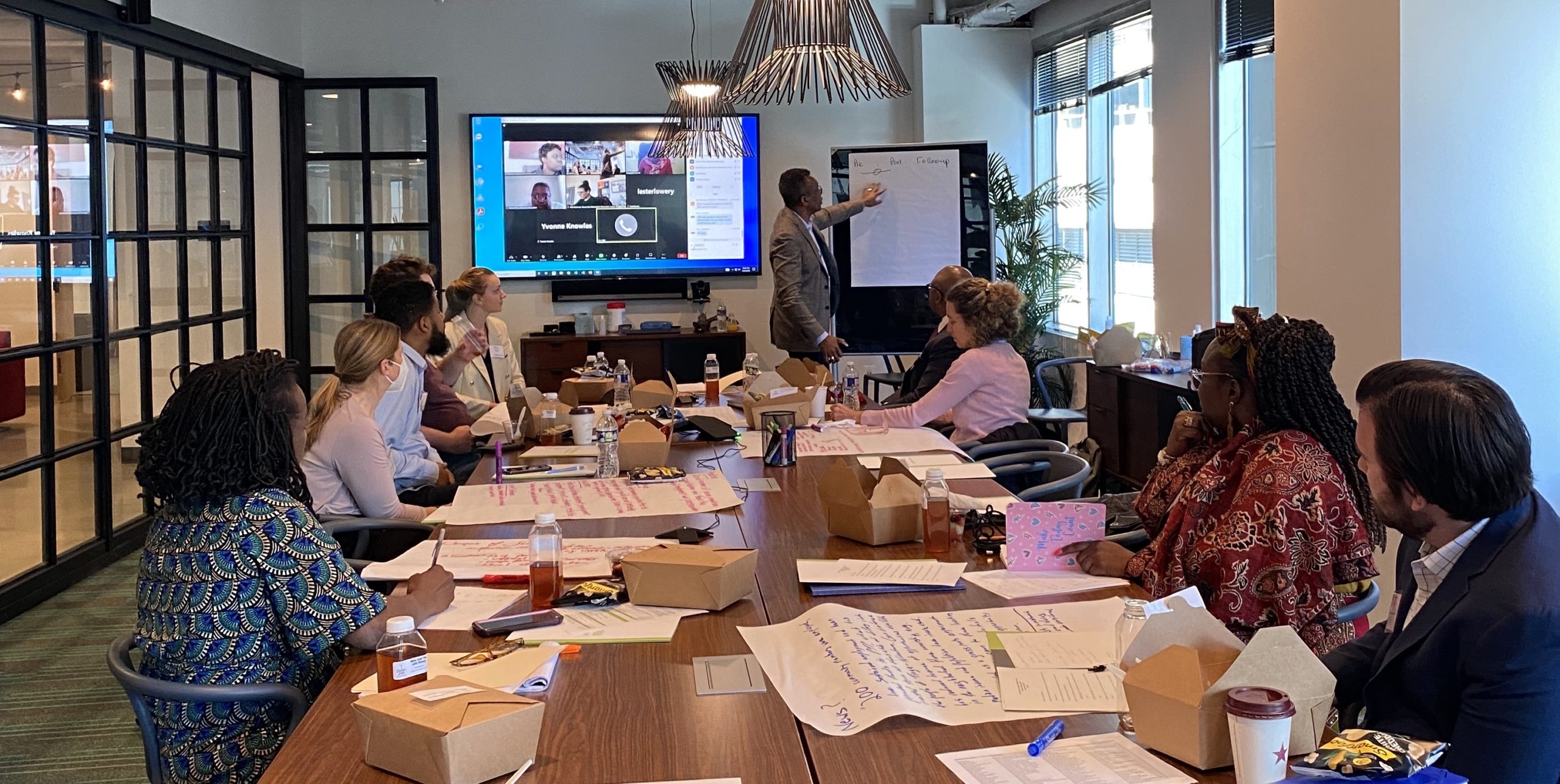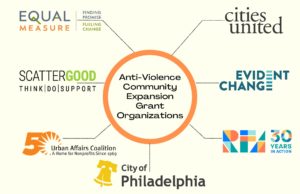Get Involved

 Become a Thought Partner
Become a Thought Partner
Partner with us to produce thought leadership that moves the needle on behavioral healthcare.
 Other options to get involved
Other options to get involved

Thank you!
We received your information and will be in contact soon!
Get Involved

 Grantmaking
Grantmaking
We fund organizations and projects which disrupt our current behavioral health space and create impact at the individual, organizational, and societal levels.
 Participatory Funds
Participatory Funds
Our participatory funds alter traditional grantmaking by shifting power
to impacted communities to direct resources and make funding decisions.
 Special Grant Programs
Special Grant Programs
We build public and private partnerships to administer grant dollars toward targeted programs.
 Program Related Investments
Program Related Investments
We provide funds at below-market interest rates that can be particularly useful to start, grow, or sustain a program, or when results cannot be achieved with grant dollars alone.
Get Involved

 Alyson Ferguson, MPH
Alyson Ferguson, MPH
Chief Operating Officer
Contact Alyson about grantmaking, program related investments, and the paper series.
 Samantha Matlin, PhD
Samantha Matlin, PhD
Senior Learning & Community Impact Consultant
Contact Samantha about program planning and evaluation consulting services.
 Caitlin O'Brien, MPH
Caitlin O'Brien, MPH
Director of Learning & Community Impact
Contact Caitlin about the Community Fund for Immigrant Wellness, the Annual Innovation Award, and trauma-informed programming.
 Joe Pyle, MA
Joe Pyle, MA
President
Contact Joe about partnership opportunities, thought leadership, and the Foundation’s property.
 Bridget Talone, MFA
Bridget Talone, MFA
Grants Manager for Learning and Community Impact
Add some text here

“Every human being deserves a safe place to live, a place to raise and educate their children, to feed and clothe them,” states Dr. Nadia Ward, Learning and Community Impact Consultant with the Scattergood Foundation. This ethos sums up a core belief held by the project team that is currently providing technical assistance to the City of Philadelphia’s 31 Community Expansion Grant (CEG) recipients working to reduce gun violence in their communities.
The team, which also includes Dr. Samantha Matlin, Dr. Derrick Gordon, Nicolas Matthews, and Olivia Bruyn, come to their work with community-based organizations from varied backgrounds. They agree that community-based organizations are the backbones of the communities and feel that it is their responsibility to lend their academic skill sets in community psychology, education, and public health to enhance and uplift the work of these groups.
The project team will work with the grantees to build their internal capacity to collect and analyze their own data, tell their story and communicate their impact, and navigate challenges related to rapid growth, environmental changes, or shifts in strategic direction.
To date, the project team has met with the grantees on at least four different occasions – an introductory meeting, a large group workshop focused on secondary traumatic stress, in small groups of 10 organizations each, and for individualized consulting sessions. They have each been struck by the commitment these organizations have to their work and to their communities. “Their commitment to their community and their selflessness…the adjectives are just not sufficient,” says Derrick, in awe of the grantees.
“None of the folks that I have met with are doing this as a job, they have had a lived experience that has brought them to this place,” says Nadia, reflecting on how deeply personal the work is for the grantees, driving their passion and commitment. “They are fervent in their belief that the work that they are doing is going to make a change and has made a change for many of the young people that they have worked with.”
The work has not come without challenges. Many of these organizations are receiving large grants for the first time and have expressed a need for more clarity about the administrative requirements and process. They’re accustomed to getting up every day and doing the work, much of which they’ve been able to do even without the resources that come with the Community Expansion Grants.

In order to mitigate some of these challenges, the project team presented a roadmap for the grantees, including all of the involved partners, their roles, and a detailed timeline of activities. Bringing clarity to the process has helped to build trust between the project team and grantees.
Establishing a strong foundation for their working relationship has been a core priority of the project team. About a month ago, the project team met with each of the grantees in their communities, a critical step for establishing a strong relationship. Nadia explains that the project team approached those meetings with a goal of getting to know the organizations. “[We] have a deep appreciation for what [they’ve] got going on, the challenges that [they’re] encountering, and hopefully being a part of a conversation and a solution.”
The project team recognizes that while they have immense faith in these organizations to deliver positive outcomes, it will ultimately require policy change and public investment in order to significantly change the conditions in the communities most affected by gun violence. “The issues that are there are actually more multifaceted. So until we think about it from a holistic perspective, we’re not going to make any meaningful change,” says Derrick. The project team agrees, citing policy solutions like raising the minimum wage, investing in public education, offering affordable housing, and reducing the administrative process to obtain public benefits as critical elements for reform.
Until these shifts are made, the project team continues to be inspired by the grantees. “I admire the tenacity and the passion and the optimism,” says Nick. “No matter what they’ve seen, no matter what the community’s going through, they see a brighter day for tomorrow.”










